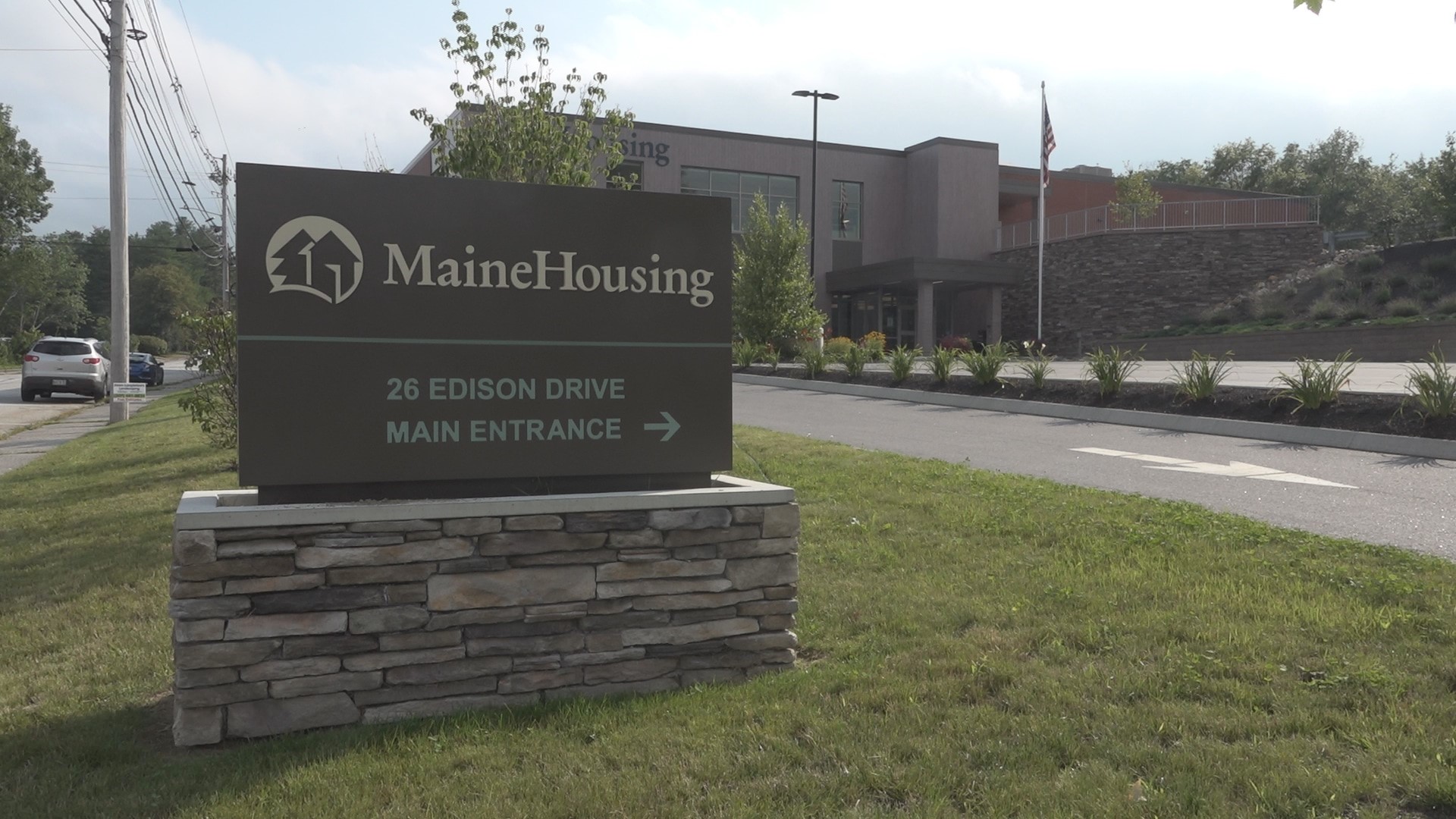AUGUSTA, Maine — Affordable housing and homelessness are two issues that the pandemic of 17 months and counting has highlighted. Now, new money is going to a Maine agency to address these problems directly -- and the hope is it will make a difference in both rural and urban communities.
In July, Gov. Janet Mills signed L.D. 1733 ("An Act To Provide Allocations for the Distribution of State Fiscal Recovery Funds") into law. This bill gives $50 million in American Rescue Plan Act federal relief funds to the Maine State Housing Authority to help build affordable housing options and address homelessness in our state.
"With a surging real estate market and an increase in property values, housing has become more difficult to afford, especially for folks on fixed incomes and those who wish to remain in the communities they have lived and worked in for years," Gov. Mills wrote in part in a statement, noting she believes strengthening Maine's economy means investing in Maine people.
RELATED: Maine's deployment of rent relief money will likely lead to fewer evictions, housing experts say
"We can really make some generational changes with deploying this money, so we're excited about it," Dan Brennan, director of the MaineHousing, told NEWS CENTER Maine. He says this money could make a big difference for Mainers in need of workforce housing, since that's what the money is allocated for. MaineHousing has been working with the Governor's Office of Policy Innovation and the Future, as well as the Department of Economic and Community Development, to determine how to use this funding.
"For years and years, the housing sector has felt like, 'Okay, it's really important we're over here, and nobody's paying attention to us'. That has changed so dramatically," Brennan said, talking about the effects of the pandemic.
Representative Laura Supica (D-Bangor) says she is excited about the prospects of what this funding could do, noting that the better surrounding areas do, the better service centers like Bangor and Portland are able to do. She says urban hubs like these cities can sometimes be overwhelmed by the amount of people they see in need of housing or shelter.
"The pandemic really exacerbated the issue, and it became more work than I think one city can afford to do," Supica expressed.
That's something Rindy Fogler, the assistant director of Bangor Public Health and Community Services, can attest to. She says throughout the past year, Bangor has seen a number of people experiencing homelessness coming from rural areas of Maine, as well as out of state. Data indicates more than 70 percent of guests were from municipalities other than Bangor.
"We're really struggling under the weight of the amount of homelessness we're seeing," Fogler explained. "(We're) trying to address (it) and trying to help people."
Fogler says oftentimes, people don't want to leave their communities -- but when there aren't available resources in their region, they're forced to look elsewhere for help.
"It's nearly impossible -- if not impossible -- for someone to maintain their mental health and their physical health, if they don't have stable housing," Fogler said about the importance of addressing that need.
Blue Hellwig, a 19-year-old originally from Ellsworth but experiencing homelessness in the Greater Bangor area, has firsthand experience. They say they dropped out of high school at 16 years old to leave an abusive household. Since then, they've been resorting to different means of getting by -- living in their car or couch-surfing. Blue says one misperception they would like to change is the idea that breaking the cycle is easy and just requires someone not being lazy.
"Because of my strained housing situation, my work experience and my resume (are) garbage," Blue explained, saying she can't find an apartment for less than a $1,000 rent check. "Whatever job I can get, I can't pay for an apartment by myself."
The pandemic is a reminder that homelessness can happen to anyone -- and can be brought on by a number of different factors.
"It has shown how close so many people are to the edge of homelessness," Donna Yellen, the deputy director of Preble Street, said, emphasizing the importance of breaking down stereotypes and misperceptions.
Preble Street has programs that serve people throughout the entire state -- and she says she's "thrilled" about this recovery money to see it help people in all corners and from all backgrounds. She expects it will likely have a ripple effect with other issues, too. For example, Preble Street used to serve 600,000 meals per year to people before the pandemic -- and then that number increased to more than a million meals. Yellen says housing insecurity is often a direct cause of hunger.
"Not only will (this money) help many, many people be housed -- but also, it will help children not be hungry," Yellen said.
Brennan says the $50 million in funding will be made available 90 days after the bill was signed into law -- so, around mid-October. He says by then, MaineHousing should have more detailed and specific plans in place. He says in addition to this money, there is also additional funding going to MaineHousing to address homelessness in general.
One immediate resource available to people struggling via MaineHousing is the Emergency Rental Assistance Program here.

